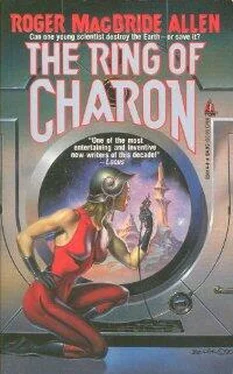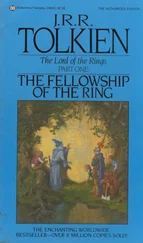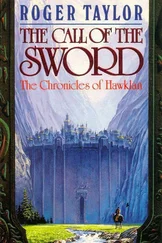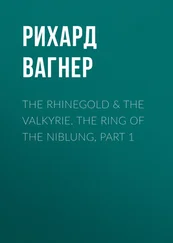Roger Allen - The Ring of Charon
Здесь есть возможность читать онлайн «Roger Allen - The Ring of Charon» весь текст электронной книги совершенно бесплатно (целиком полную версию без сокращений). В некоторых случаях можно слушать аудио, скачать через торрент в формате fb2 и присутствует краткое содержание. Год выпуска: 1990, ISBN: 1990, Издательство: Tor Books, Жанр: Фантастика и фэнтези, на английском языке. Описание произведения, (предисловие) а так же отзывы посетителей доступны на портале библиотеки ЛибКат.
- Название:The Ring of Charon
- Автор:
- Издательство:Tor Books
- Жанр:
- Год:1990
- ISBN:0-812-53014-4
- Рейтинг книги:5 / 5. Голосов: 1
-
Избранное:Добавить в избранное
- Отзывы:
-
Ваша оценка:
- 100
- 1
- 2
- 3
- 4
- 5
The Ring of Charon: краткое содержание, описание и аннотация
Предлагаем к чтению аннотацию, описание, краткое содержание или предисловие (зависит от того, что написал сам автор книги «The Ring of Charon»). Если вы не нашли необходимую информацию о книге — напишите в комментариях, мы постараемся отыскать её.
The Ring of Charon — читать онлайн бесплатно полную книгу (весь текст) целиком
Ниже представлен текст книги, разбитый по страницам. Система сохранения места последней прочитанной страницы, позволяет с удобством читать онлайн бесплатно книгу «The Ring of Charon», без необходимости каждый раз заново искать на чём Вы остановились. Поставьте закладку, и сможете в любой момент перейти на страницу, на которой закончили чтение.
Интервал:
Закладка:
Raphael’s voice boomed out of the speaker. “Raphael here.”
“Sir, Larry Chao down in Control Room Four. I’d like to set up the Ring as a gravity detector and see what we can find out. It seems as if everyone else has canceled out their experiments anyway—”
“Do what you want, Chao. Do whatever in God’s name you want. I can’t see that it will make the slightest bit of difference.”
The line went dead as Raphael cut the connection. Larry shivered to hear the defeat in the old man’s voice. Raphael had given up, accepted the fact that Earth was destroyed, and surrendered himself to sorrow. Perhaps he was only being realistic. What possible point could there be to activity, to effort on this day?
But no. Larry wasn’t made that way. Even if it was crazy to do so, he had to keep on trying. Better to be insane and fighting than sane and defeated.
He began laying in his configuration.
The Autocrat of Ceres sat in his very plain chair in the very plain compartment, and regarded the two very nervous people before him with regret. He was going to have to kill them.
“I’m very much afraid,” he said, “that I don’t have much choice in the matter. You were each expected to show cause why I should not put you to death. I have seen no such cause shown. Instead I have seen two people who have allowed a petty squabble over mining rights to degenerate into another useless rock war. It is your egos, and not the mining rights, that prevent justice in this case. And the Autocrat’s Law requires me to remove all obstacles to justice. Case closed.” The Autocrat nodded toward his marshals, and they stepped forward.
The plaintiff screamed, the defendant fainted. The marshals were good at what they did. Within seconds, both of the claimants were restrained, sedated, and being taken away, toward the Autocrat’s very plain, very famous, very deadly airlock. The one where pressure suits were not allowed. The place to which human obstacles to justice were quite literally removed.
Justice, as with many other things in the Belt, was in short supply, and when available, was not of the best quality—too rough, too harsh and too rushed. To the Inner System dandies who visited now and again, the Autocrat’s Law seemed barbaric, violent and vengeful. But to the Belters, who had no other source of justice, the Autocrat’s Law represented civilization itself. In all the wide, wild, ungovernable vastness of the Asteroid Belt, they knew there was one place, one name, one law that all could trust. Only the Autocrat’s Law could protect them against themselves. Harsh and final it might be, but so too was it impartial.
For the Belters knew the Belt was huge—ungovernably huge. There could be no law when law enforcement was impossible, and no conventional enforcement was possible when the population density was something less than one crotchety misanthropic old coot per million cubic kilometers. It was easy for other things besides law to get lost in the midst of all that vast expanse.
Things like sanity, order, trust, proportion. Megalomania was an easy disease to catch when a man or a woman could have a world—albeit a very small one—for the effort of landing on it. And if your own world, why not your own law, your own empire? Why not declare the divine right of kings and expand outward, conquering your neighbors as you go?
The Belt had seen a thousand rock wars between independent states, many of which consisted of two rock-happy miners taking potshots at each other. If lunatics wanted to exterminate each other, that was their own affair, but there was a more serious and basic problem. Other people could get drawn in, or get caught in the cross fire. In all likelihood, the Autocrat had saved dozens of lives this day by blotting out the leaders in this pointless fight.
But, obvious as the case had been, the Autocrat had taken pause before rendering his decision. The present Autocrat of Ceres was a most careful person. But so was the previous holder of the post, and the one before that. No other sort of person would ever be appointed.
Not only Ceres, but the entire Belt Community as well depended on the Autocrat’s authority to supply order, discipline, regimentation, at least to Ceres and its surrounding satellites and stations. Anarchy surrounded Ceres on all sides, but even the Belt’s wildest anarchists knew they needed Ceres to be stable, orderly, predictable, to be a place where a trader could buy and sell in safety.
The rules might change elsewhere with every passing day, but at Ceres the Law was always the same. Claims filed in the office of the Autocrat were honored everywhere—for they were backed not only by the Autocrat’s Law and Justice, but his Vengeance.
Nothing but fair dealing was ever done in a Ceres warehouse. None but fair prices were ever paid. No one brought suit frivolously. For the Autocrat himself stood in judgment of all cases.
By the Law, the Autocrat was required, in every case from unlicensed gambling straight up to claim jumping and murder, to find cause why the death penalty should not be exacted against one—or both parties—to the case. If the Autocrat could not—or would not—find such cause, plaintiff and claimant, accuser and defendant died.
The Autocrat’s Law had a long reach. Many defendants were tried in absentia , having chosen to flee rather than face a day in court. But as the saying went, If the Autocrat finds you guilty, he will find you in the flesh . His bounty hunters—and his rewards—found the guilty everywhere. Very few places refused to honor his warrant—and none were places a sane man would flee towards.
Indeed, fear of the Autocrat’s Justice prevented all but the most worthy claimants from coming forth to ask it, and prevented all but the most venal from risking its power. Calls for justice were few and far between when the sword was as sharp as it was double-edged.
Today, however, the Autocrat found himself besieged. Radio calls were coming in from all over the Belt reporting claim frauds. Claims beacons were being shifted, were even vanishing. Legally beaconed asteroids, even a few with active mines, were being moved without the claimant’s authority. Having disposed of the last court case for the day, the Autocrat stood up from his courtroom and hurried toward his private operations room.
One or two of his predecessors, the more self-important ones, would have been coldly furious at this assault on claims filed under the Autocrat’s authority. Perhaps they would already be calling the marshals, preparing to broadcast attack orders, offering massive bounties.
The Autocrat was tempted to do just that himself, but he hesitated. It was the duty of the Autocrat to think before acting. Who would dare wage such a wholesale assault on claims in the Belt? Who had the sheer raw physical power to move whole fleets of asteroids? Who had that many of the massive fusion engines required for the job? How had they made the complex preparations for the job without anyone noticing?
He reached his private ops room and felt himself relax a bit. The Autocrat was a solitary man. At times of crises he preferred to work by himself, alone with his own thoughts and reflections. He sat down at his desk.
An alert notice was blinking in the center of his desktop controls. Something big had happened. The Autocrat pressed the playback control. A screen came to life and he read with mounting astonishment the words that scrolled past. The incoming reports were obviously garbled, confused, bizarre, contradictory. Most of it he flatly did not believe. But something remarkable had clearly taken place in the Earth-Moon system.
In the meantime, the Autocrat had his own worries. He powered up his holographic display system and set the controls to provide a schematic of the entire Belt, highlighting the various claim-jumping complaints. He leaned back in his chair and examined the glowing midair image carefully.
Читать дальшеИнтервал:
Закладка:
Похожие книги на «The Ring of Charon»
Представляем Вашему вниманию похожие книги на «The Ring of Charon» списком для выбора. Мы отобрали схожую по названию и смыслу литературу в надежде предоставить читателям больше вариантов отыскать новые, интересные, ещё непрочитанные произведения.
Обсуждение, отзывы о книге «The Ring of Charon» и просто собственные мнения читателей. Оставьте ваши комментарии, напишите, что Вы думаете о произведении, его смысле или главных героях. Укажите что конкретно понравилось, а что нет, и почему Вы так считаете.












